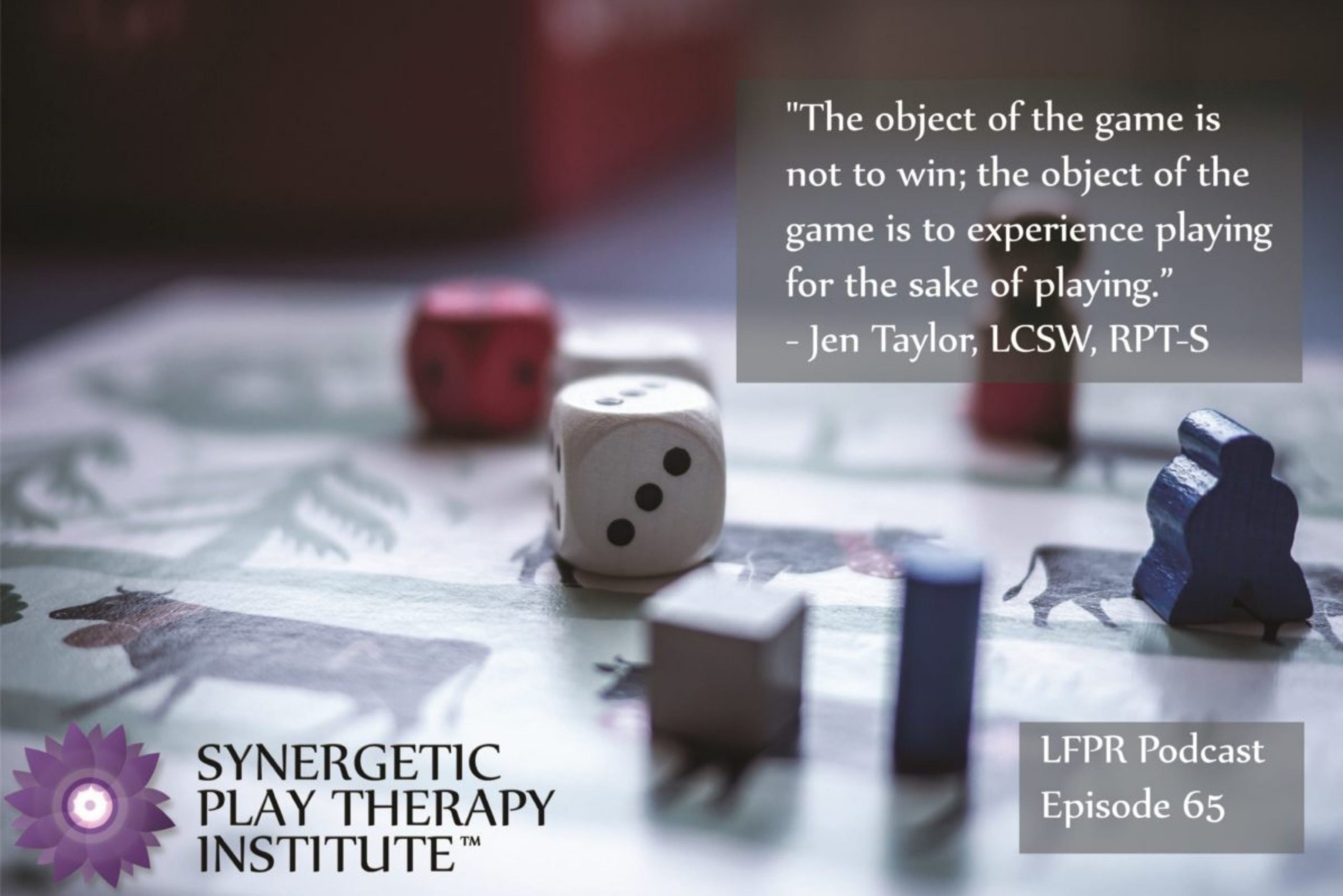Cooperative Games are growing in popularity, likely because of their ability to cultivate teamwork and appreciation of one another. In the playroom, they’re used effectively with siblings and families, reminding each player that it’s not about winning; it’s about the experience.
1:30 Lisa introduces Jen Taylor, LCSW, RPT-S
2:00 Game Play: Therapeutic Use of Games with Children and Adolescents
2:30 Lessons from the Playroom Episode 11: Making Games Therapeutic in Play Therapy
3:20 What are Cooperative Games?
4:15 What Cooperative Games are there in the playroom?
5:20 Race to the Treasure
5:59 Hoot Owl Hoot
6:50 Why are Cooperative Games important?
7:45 What are the three things cooperative play builds?
9:30 Cooperative Games and siblings
10:33 Using Cooperative Games as an assessment tool
11:30 Working with families with Cooperative Games
12:30 Cooperative Games versus Competitive Games
13:59 How can we create our own Cooperative Games?
16:00 What are some very simple examples of Cooperative Games?
17:30 Cooperative Games are played for the sake of playing
18:59 What are some of the Cooperative Games recommended?
21:00 What are some of the things clinicians should be aware of regarding Cooperative Games?
23:20 Cooperative Games are like escape rooms for kids
24:33 How do Cooperative Games shift focus and change perceptions?
25:50 How do Cooperative Games help provide a positive impact through video games (including those that are violent)?






